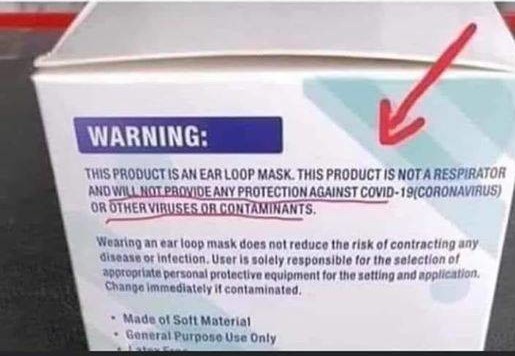I covered this in a post ridiculing a Superior Court decision upholding Nashua’s mask mandate, but with more and more municipalities passing or considering mask-mandates, I decided the topic was worthy of its own post.
Let’s start with the principle that New Hampshire is NOT a “home rule” State. That means, as the New Hampshire Supreme Court said in 2019 in affirming an ordinance criminalizing women going topless in public, a municipality only “may exercise such powers as are expressly or impliedly granted to it by the legislature.”
In other words, in order for a municipality to mandate masks, there must be a statute that expressly or impliedly gives municipalities the power to do so.
The Superior Court in a recent decision upholding Nashua’s mask mandate conceded that there is no express grant of such a power to cities or towns:
The Superior Court claimed that there was an implied grant of power in RSA 47:17:
But there is much more to RSA 47:17, XV than that. In other words, the Superior Court lifted that part of the statute out of context, which even a first-year law student knows is a no-no when interpreting statutes (“we do not consider words and phrases in isolation, but rather within the context of the statute as a whole”). Here is the rest of that statutory provision:
The reason the Superior Court hid the context is the rule of statutory interpretation called ejusdem generis: “where general words follow an enumeration of persons or things, by words of a particular and specific meaning, such general words are not to be construed in their widest extent, but are to be held as applying only to persons or things of the same kind or class as those specifically mentioned.” (State v. Proctor, 170 NH at 806.)
Ejusdem generis is easily understandable once you ask your self the question: “Why would the legislature go through all the time and effort to particularly list all the things listed in RSA 47:17, XV if it wanted to give cities the power to make any ordinances for the well-being of the city?” Obviously, the legislature would NOT. The legislature would have simply said that cities have the power to make any ordinances for the well being of the city, and not bothered with listing everything preceding that.
The only way to reconcile the detailed list of enumerated powers and the final sentence is that the power to “make any ordinances for the well being of the city” means “and anything similar to the things we listed above.” So, for example, while “street food” is not specifically enumerated, the city would have the power to regulate vendors of “street food” because they are similar to “butchers, petty grocers, or hucksters, peddlers, hawkers, and common victualers.”
I am not going to go through RSA 47:17, XV sentence by sentence because this is a blog-post, not a legal brief. But there is nothing in the statutory provision from which one can reasonably imply a power to mandate masks. There is a comment section below, so feel free to try to make a counter-argument.
To sum up, New Hampshire cities and towns have NO legal authority to mandate masks.
